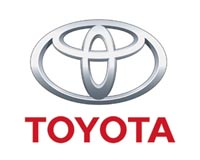 |
Tokyo (AFP) Oct 22, 2010 Nissan said Friday it had started producing its Leaf electric car in Japan as it prepares to put it on sale at home and in the United States in December. Nissan, which is part-owned by Renault of France, has billed the Leaf -- short for Leading Environmentally-friendly Affordable Family car -- as the world's first mass-produced electric vehicle (EV). "This is a significant milestone, not only for Nissan and the Renault-Nissan alliance, but also for the entire automotive industry," said Nissan president and CEO Carlos Ghosn at a ceremony in Japan. "Consumers are clear. They want sustainable and affordable mobility... and the alliance is leading the way with cars that deliver exactly that, with the reliability, excitement and performance that consumers demand." He pledged the Leaf "will radically transform what consumers expect from automobile manufacturers worldwide". Nissan has gambled that its EVs will take off globally and overcome consumer concerns such as "range-anxiety", or the fear that their cars will run out of juice between electric charging points. To promote its EVs and set up charging stations, Nissan says it has signed 80 partnerships worldwide with governments, municipalities and companies. The five-seater hatchback, with a top speed above 140 kilometres (90 miles) per hour, has a range of 160 kilometres and can be recharged in eight hours, or rapid-charged to 80 percent of capacity in 30 minutes. Its lithium-ion batteries are manufactured in a joint-venture between Nissan and Japanese electronics giant NEC Corporation. Having kicked off Leaf production at its plant in Yokosuka southwest of Tokyo, Nissan plans to also start rolling out the EVs from a US plant in Tennessee in late 2012 and a factory in Sunderland, England, from early 2013. The Leaf is due to go on sale in December in Japan and the United States, and from early 2011 in several European markets. Ghosn said in May that the first year of production had already sold out. Nissan has reported receiving 20,000 orders for the Leaf in the US alone. Nissan, which is about 45 percent owned by Renault, predicts electric cars will account for 10 percent of global sales by 2020.
earlier related report The largest South Korean automaker on Friday signed a memorandum of understanding with Ziyang Nanjun Automobile Co. that will see a joint investment of 500 billion won (440 million dollars). Hyundai and Nanjun will establish a number of joint projects to produce and sell trucks, buses and engines, as well as to develop new models and provide follow-up services, Hyundai Motor said in a press statement. Through the joint venture, Hyundai hopes to sell about 90,000 commercial vehicles in 2011, rising to 300,000 by 2015, representing a five percent share of China's commercial vehicle market, it said. Hyundai Motor has two plants in Beijing with an annual production capacity of 300,000 cars each. It sold 510,000 vehicles in the first nine months of this year, up 24 percent from the same period last year.
Share This Article With Planet Earth
Related Links Car Technology at SpaceMart.com
 Toyota recalls 1.5 million cars over brake fluid leak
Toyota recalls 1.5 million cars over brake fluid leakTokyo (AFP) Oct 21, 2010 Toyota on Thursday announced a safety recall of about 1.5 million vehicles worldwide to fix a brake fluid leak that it warned can gradually diminish braking performance. The world's largest automaker, which was battered by a global safety crisis earlier this year, said it would voluntarily recall 740,000 cars in the United States and almost 600,000 in Japan to fix the problem. It was als ... read more |
|
| The content herein, unless otherwise known to be public domain, are Copyright 1995-2010 - SpaceDaily. AFP and UPI Wire Stories are copyright Agence France-Presse and United Press International. ESA Portal Reports are copyright European Space Agency. All NASA sourced material is public domain. Additional copyrights may apply in whole or part to other bona fide parties. Advertising does not imply endorsement,agreement or approval of any opinions, statements or information provided by SpaceDaily on any Web page published or hosted by SpaceDaily. Privacy Statement |